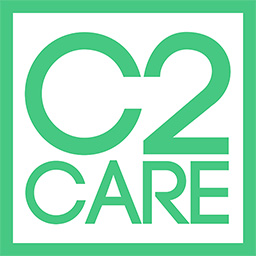Do you have obsessive-compulsive disorder (OCD)?
You can’t leave your house without checking a dozen times that you have closed the door, it’s stronger than you. It’s unthinkable to go to certain public places, you only see dirt and grime. You have obsessions that will have a real impact on your daily life, you prevent yourself from doing certain activities, you waste time checking and counting multiple things which makes you late for many professional or personal appointments. You may be suffering from obsessive-compulsive disorder, better known by the acronym OCD.

TABLE OF CONTENTS
1. Obsessive compulsive disorder, what is it?
Everyone can be preoccupied by certain thoughts, but they will often disappear and make way for the pursuit of life. We have all had the experience of checking that we have locked the front door or that we have not forgotten to pick up certain items before leaving.
However, for some people these situations take on a very strong importance, taking up a large part of our daily time or preventing us from going to certain places. At this point, we can talk about OCD.
OCD is a chronic psychological illness that is characterized by major obsessions and compulsions.
You are completely unable to stop these thoughts even though you are aware that they no longer make sense. These thoughts will cause you to engage in repeated behaviors to help alleviate them.
There are different themes of obsessions that will lead to different behaviors: such as the fear of dirt and contamination that will lead you to clean everything; the fact of counting the number of times you lock your door or the gauze ….
These are therefore intrusive, constraining thoughts that lead you to carry out certain behaviors, which will cause you anguish and intense suffering on a daily basis.
2. Many impacts on daily life
You recognize the illogical nature of your thoughts and behaviors but you are unable to control yourself, which will lead to great psychological suffering. OCD is therefore an irrational fear that will greatly impact your daily life.
Many people suffering from OCD will try to hide it from their loved ones, because they feel a strong sense of shame or feel that they are not “normal”. They are often afraid of being judged negatively by others. Hiding your suffering can make you feel very lonely.
Many people who suffer from OCD do not seek professional help because they think that their OCD will eventually go away or disappear on its own. Rather than seeking professional help, some people will choose to avoid situations that they consider “dangerous”. Your obsessive-compulsive disorder will take up your time and prevent you from doing certain activities. Thus these disorders can have consequences on the professional, family or social level.
3. How do obsessive-compulsive disorders develop?
Can OCD affect everyone?
OCD is one of the most common mental illnesses. OCD is present in about 2 to 3% of the adult population. As a general rule, it will appear around adulthood but can also occur during childhood.
The origin of OCD remains relatively unclear, however, different known factors can promote the occurrence of OCD. In these factors we can find :
Family and genetic factors
People suffering from obsessive-compulsive disorders often have relatives in their family who have anxiety disorders, OCD, or tics.
Some studies have tried to show that a more rigid upbringing can favour the development of OCD, but it has not proved sufficient to validate it.
On the other hand, other studies have been able to demonstrate that genes have an impact on the development of OCD.
Be careful, it is not because some of your family members have these types of disorders that you will necessarily suffer from them as well, these factors will create pre-dispositions.
Traumatic origin
Approximately 30% of OCDs have a traumatic origin or come from an important stress. Thus, traumas would be a revelation of obsessive-compulsive disorders.
Neurobiological factors
The origin of OCD is neurobiological. Indeed, studies tend to show that people suffering from OCD have a deficit in serotonin, dopamine or vasopressin.
These neurotransmitters are responsible for the proper functioning of our brain and are involved in feelings of well-being and regulation of emotions.
When these neurotransmitters are disrupted, you will be in a constant state of excitement, emotional hypersensitivity and problem detection.
4. How do I treat my OCD?
The goal of OCD treatment is to reduce the symptoms in order to return to a more normal daily life. The goal is also to decrease the time given to the practice of the different rituals.
If you are reading this, you may be suffering from OCD and are unable to reduce it despite all your motivation. Obsessive-compulsive disorders are part of the pathologies that require the help of one or more professionals
Medication management
As we have seen previously, your OCD is linked to a neurobiological disorder of your neurotransmitters. Thus, medication such as antidepressants will help to reduce the intensity of your OCD. This prescription is made by a doctor who will follow you throughout the treatment, which is often long and continues after the symptoms have disappeared.
Non-medicinal management
One therapy that has proven itself in the treatment of OCD is Cognitive Behavioral Therapy.
This type of therapy is a short therapy that consists of acting directly on the problematic behaviors and on the thoughts and emotions that are related to your obsessive-compulsive disorder.
The goal of this therapy is to expose you to situations that are a source of anxiety for you, situations in which your disorder needs to be expressed. By exposing yourself in this way, notably through virtual reality, you will learn to stop avoiding the situations you fear, to face the situations you fear without performing the rituals related to them. In addition to this behavioral work, cognitive work will be done to help you identify your false beliefs about yourself or your environment.
Exposure through virtual reality allows you to be repeatedly exposed to these different situations while remaining in a safe environment and completely controlled by your therapist.

